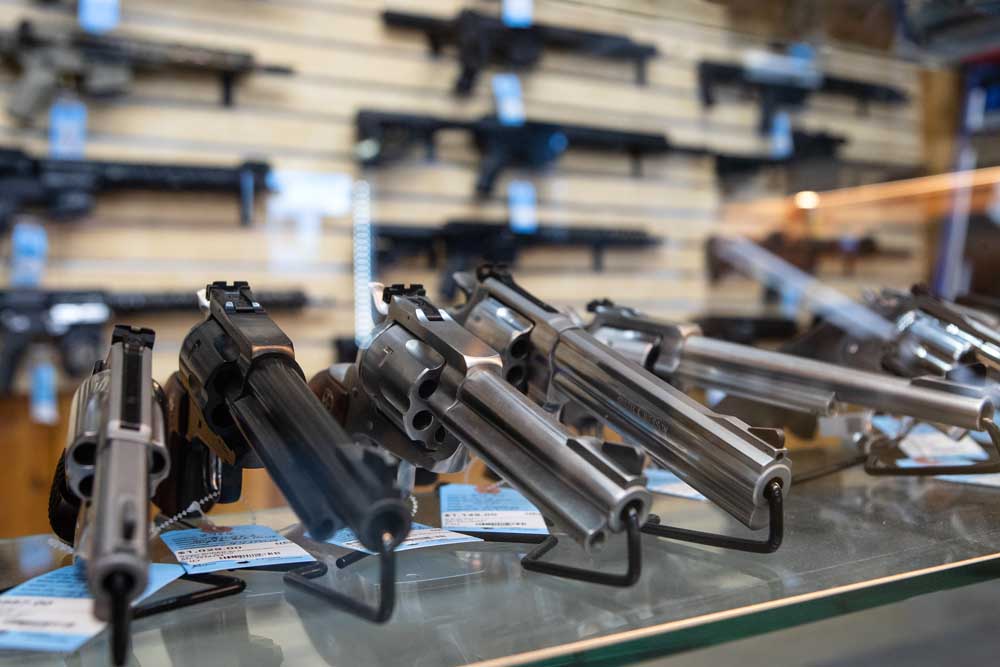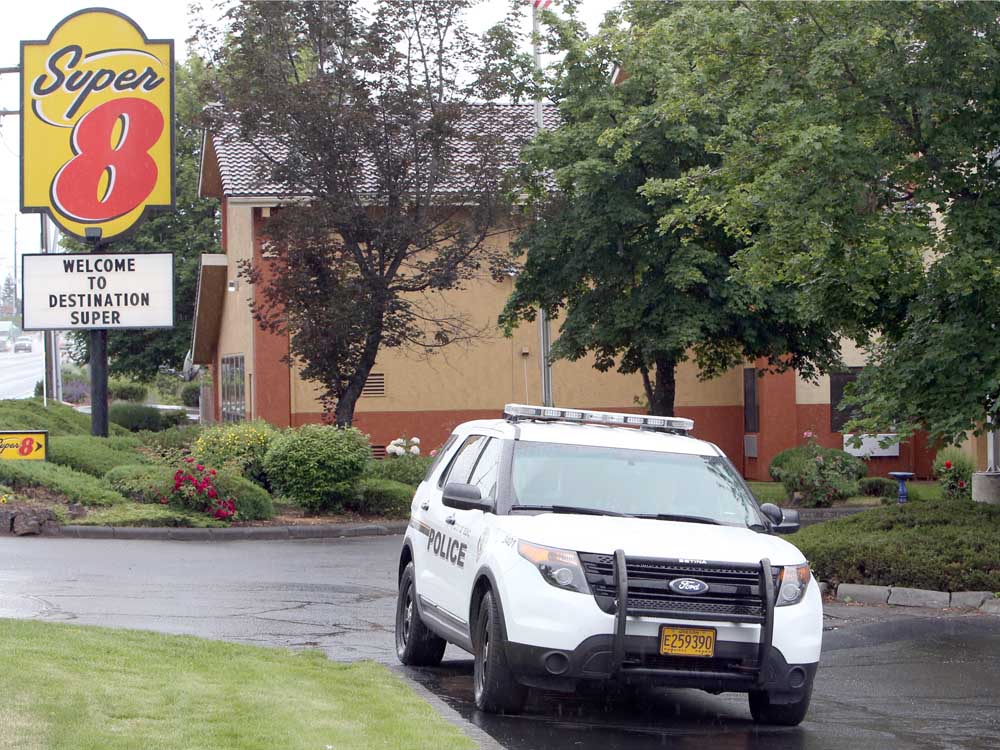Oregon’s gun laws: Here’s what you should know
Published 8:30 am Wednesday, February 21, 2024

- Guns for sale are displayed at Hammer Down Firearms in Bend on Feb. 8.
Gun laws remain one of the most divisive topics in Oregon and the country.
They are often mired in legal battles in courts and states legislatures across the county, making it difficult to know what the laws are. This includes Oregon’s Measure 114, the state’s newest gun-control bill, which has yet to go into effect because of legal challenges in Harney County.
Here’s a rundown of what you need to know about the Oregon laws pertaining to firearms and ammunition.
A brief history
Oregon’s laws around guns have changed over time.
In 2000, the state began requiring criminal background checks for anyone who bought a gun at a gun show.
In 2009, the state signed onto the National Instant Criminal Background Check System, which was created in the wake of the Virginia Tech shootings. It addressed loopholes in the background check system by allowing federal authorities to notify sellers when people with a severe mental illness attempted to purchase or transport guns.
In 2015, the state enacted a new law prohibiting the private sale of guns. It required such sales and transfers to be conducted through a federally licensed firearms dealer. Violators can be charged with a misdemeanor.
In 2016, the state passed its red flag law, which allowed a concerned family member, household member, or law enforcement officer to ask a judge for an Extreme Risk Protection Order. A one-year court order, it mandates people who pose a danger to themselves or others to give up their firearms and bars them from purchasing any new deadly weapons.
In 2019, Oregon made it a crime for somebody with a domestic violence conviction to own a gun.
In 2021, voters passed Senate Bill 554, which requires gun owners to keep their weapons in a locked safe or room. Gun owners whose weapons are stolen and used in a crime were made civilly liable.
What’s happening with Oregon’s latest gun law?
Oregon voters passed Measure 114 in 2022. It banned the sale of firearm magazines with more than 10 rounds and required safety training and a permit to purchase a gun.
It also required gun buyers to obtain a permit from a sheriff’s office and pay $65. Buyers are also required to take an approved firearms-safety course and submit photo identification and fingerprints and pass a criminal background check.
The law was supposed to go into effect on Dec. 8, 2023, but has been on hold ever since as the state has argued its legality.
Harney County Judge Robert Raschio on Nov. 21, 2023, ruled that the measure violated the constitutional right of Oregonians to bear arms.
But earlier this month, attorneys for the Oregon Department of Justice argued that Raschio’s ruling was wrong. They asked the state to put a hold on the the ruling while they appeal the decision. If granted, the hold would allow the measure to go into affect for the first time.
What are the rules for carrying a concealed weapon?
People seeking a concealed handgun license in Oregon can do so by taking an online course. Permits, which are valid for four years, allow people to carry a gun in public buildings except certain state-run buildings, like a courthouse or Department of Human Services building. They can also carry a gun in state parks and forests and wildlife management areas, but not in federal buildings.
Permit seekers must be at least 21 and must apply in the county in which they live. People are barred if they are an unlawful user of controlled substances, have outstanding arrest warrants or have been dishonorably discharged from the armed services. They cannot have had a misdemeanor conviction in the past four years and cannot have any felony convictions.
What other restrictions are there?
Oregon law prohibits people from accessing ammunition if they have a domestic violence history or have been issued stalking orders or restraining orders. People must be over the age of 18 to purchase ammo.
Oregon law does not require ammunition sellers to have a license or maintain a record of purchasers. It also does not require safe storage or restrict locations where people can have ammunition.
Short-barreled shotguns, machine guns and silencers are all regulated by the Bureau of Alcohol, Tobacco, Firearms and Explosives. That means they have to be registered with the federal government.







